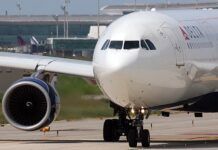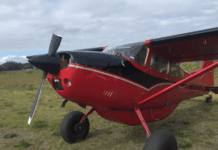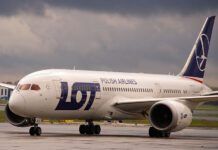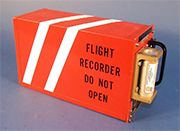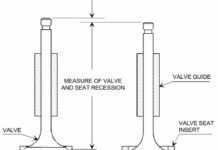 I arrived at the United Airlines gates at Los Angeles International Airport (LAX) an hour before my flight’s scheduled departure to San Francisco International Airport (SFO) only to find that it had been canceled. I sighed. “Not again!” I thought.
I arrived at the United Airlines gates at Los Angeles International Airport (LAX) an hour before my flight’s scheduled departure to San Francisco International Airport (SFO) only to find that it had been canceled. I sighed. “Not again!” I thought.
At the departure gate, I waited my turn at the check-in counter while other passengers had their travel arrangements sorted out by United Airline’s employees. One particularly irate woman slammed her ticket folder onto the counter and shouted, “I paid over $200 for this ticket and now you expect me to go standby for the next flight!”
I felt empathy for the United employee who stoically remained calm while under verbal assault. It was hardly her fault the woman’s flight had been canceled. Yet this flight was one of many that had been either delayed or canceled that morning.
Other passengers, exhibiting varying degrees of impatience, anger and antipathy towards any airline employee, milled around the departure area. Seating for departure passengers in the United Airlines area at LAX is limited and people loitered wherever they could find space. Arrival passengers from other flights fought to make their way through the disgruntled mass. Depending to whom one spoke, the cause of the disruptions was either adverse weather at SFO, air-route congestion, or a mixture of both. Just another day of joy for the unfortunates who need to travel between Los Angeles and San Francisco. C’est la vie.
 Sometime later in Atlanta while on my journey home, Delta Air Lines canceled the 5:30 afternoon flight to Greensboro, N.C. Passengers who were supposed to be on that flight were now standing-by for the 7:55 flight. Unfortunately for them, this flight was also booked to capacity. Their reactions were a mirror of what I had experienced in LAX.
Sometime later in Atlanta while on my journey home, Delta Air Lines canceled the 5:30 afternoon flight to Greensboro, N.C. Passengers who were supposed to be on that flight were now standing-by for the 7:55 flight. Unfortunately for them, this flight was also booked to capacity. Their reactions were a mirror of what I had experienced in LAX.
Delta employees announced over the PA that if volunteers gave up their seats, they would be compensated with 700 “Delta dollars” and a free night at a local hotel. Apparently, two other flights to Greensboro that evening were also fully booked and seats would not be available for those who chose to forgo their seats. The passenger standing next to me remarked, “What’s a Delta dollar?”
I shrugged. “I guess it’s money you can apply to any future Delta flight.”
“Well … what fare does that apply to?” He asked.
“I can’t say for sure, but probably their full economy fare rate. Why don’t you ask them?”
“Not me … I’ve got to get to work tomorrow!”
A woman with a young infant and all the paraphernalia that is required for travel with a child sat uncomfortably between two other departing passengers. Her face was flushed and her hair disheveled. The child lay sleeping in her arms. I silently applauded her courage at maintaining her composure under such conditions. To her right, a businessman grimaced as he typed rapidly on his laptop. I shook my head in sympathy and once again thought of how the information age has meant that many passengers are now unable to relax and enjoy their time away from the office. The work is at hand and the office at the end of the cellular phone. There is no escape.
 With so many passengers and so few alternatives, there were many distraught and angry passengers in the departure gate area. The atmosphere held all the electricity of a play-off game. With so many people “on the edge,” I felt as though anything might happen. Miraculously, Delta’s employees finally managed to satisfy most people’s demands and the flight left on time. Just another routine day at the “Ant Farm.” (That’s what I call Atlanta; people shoulder to shoulder, walking to and from flights and traveling between terminals in subterranean tunnels).
With so many passengers and so few alternatives, there were many distraught and angry passengers in the departure gate area. The atmosphere held all the electricity of a play-off game. With so many people “on the edge,” I felt as though anything might happen. Miraculously, Delta’s employees finally managed to satisfy most people’s demands and the flight left on time. Just another routine day at the “Ant Farm.” (That’s what I call Atlanta; people shoulder to shoulder, walking to and from flights and traveling between terminals in subterranean tunnels).
These personal experiences of mine are merely an everyday reflection of what is happening at major airports and airlines all over America. Wise people are now arranging their travel plans to accommodate probable delays and flight disruptions. The unwary are suffering inconveniences with varying degrees of indignation and stress. Potential for violence is omnipresent.
The Good Old Days
 Passenger complaints to the Department of Transportation (DOT) are increasing every day. Voluntary measures airlines undertook last December to thwart regulatory threats from Congress do not seem to be easing delays, involuntary bumping or flight cancellations. For example, in March, the latest month for which statistics are available, nearly 75 percent of American Airline’s domestic flights arrived within 15 minutes of schedule. Continental and US Airways achieved approximately 81 percent of on-time arrivals. This means that a large portion of these carriers’ flights were late.
Passenger complaints to the Department of Transportation (DOT) are increasing every day. Voluntary measures airlines undertook last December to thwart regulatory threats from Congress do not seem to be easing delays, involuntary bumping or flight cancellations. For example, in March, the latest month for which statistics are available, nearly 75 percent of American Airline’s domestic flights arrived within 15 minutes of schedule. Continental and US Airways achieved approximately 81 percent of on-time arrivals. This means that a large portion of these carriers’ flights were late.
Businessmen and women missed meetings, tourists missed connecting flights and tempers flared. Some economists estimate that lost productivity due to flight delays and cancellations is affecting the U.S. economy to the tune of $5 billion per year. A study conducted by college professors — Dean Headly from Wichita State and Brent Boruen from the University of Nebraska — found that industry service has been steadily declining in quality relative to customer performance criteria since airline deregulation. They also suggested that a link exists between poor customer service and air rage. As a result, the groundswell to impose further regulations on the airline industry is gathering steam.
Before airline deregulation in 1978, the Civil Aeronautics Board (CAB) was charged with regulating airlines by dictating which routes each could fly and what fares could be charged. Purportedly, this was to ensure fair profits for airlines and good service for consumers. The CAB had its regulatory powers reduced in 1978 and was finally abolished in 1985. After this date, airlines were free to determine which routes they would serve and what fares they charged.
So the airlines were now deregulated, right? Wrong!
 The U.S. Department of Justice (DOJ), the DOT and the FAA still maintain a tight rein on airlines. Essential air services to certain smaller communities, although greatly reduced, still depend on public funding. Airlines still have air fares scrutinized for non-predatory pricing to stop major airlines forcing out start-up airlines from various markets and consumers are protected by antitrust laws applicable to mergers and acquisitions. Airlines must satisfy authorities that they have the wherewithal to operate an airline before they are issued a Fitness Certificate and minimum standards for aircraft construction, maintenance and operation are applied. Airmen, air carriers, air agencies and airports are rigorously certificated for compliance with regulations. So clearly airlines remain highly regulated in both direct economic and non-economic terms.
The U.S. Department of Justice (DOJ), the DOT and the FAA still maintain a tight rein on airlines. Essential air services to certain smaller communities, although greatly reduced, still depend on public funding. Airlines still have air fares scrutinized for non-predatory pricing to stop major airlines forcing out start-up airlines from various markets and consumers are protected by antitrust laws applicable to mergers and acquisitions. Airlines must satisfy authorities that they have the wherewithal to operate an airline before they are issued a Fitness Certificate and minimum standards for aircraft construction, maintenance and operation are applied. Airmen, air carriers, air agencies and airports are rigorously certificated for compliance with regulations. So clearly airlines remain highly regulated in both direct economic and non-economic terms.
However, none of these regulations satisfy those who would like to see airlines regulated to provide service quality. In reality, airline traffic increases have been demand-driven; therefore, consumers need to also shoulder some of the blame. They want safe, reliable and friendly service to destinations they deem desirable and at times that are convenient. Oh … and they also want to pay bargain-basement prices.
Competing airlines attempt to differentiate themselves on various aspects of their service; however, there is little doubt that seating comfort in coach sections has deteriorated since deregulation. Cramming more people into flights has been one of many methods airlines have utilized to try and contain costs. Angry people are confined and uncomfortable — and then the airline offers them liquor.
“Houston — we have a problem!”
Air Rage
In March this year, an International Air Transport Association (IATA) airline conference in Geneva resulted in a general consensus that air rage has now displaced hijackers as the top airline worry. Ian Jack, head of security for British Airways (BA), told Reuters in an interview that, ” … air rage is the biggest, most significant security threat I have to deal with on a daily basis … Bomb warnings, dangerous contents of passenger baggage have become smaller security threats in proportion to disruptive passengers … At BA the number of serious air rage cases by disruptive passengers has increased to 123 in the 12 months to the end of March 1999 from 93 the year before.”
 While passengers’ assault of cabin attendants is a serious issue, a more worrisome trend is passengers who try to force their way into the cockpit during flight. Last March, a passenger who forced his way into the cockpit of an Alaska Airlines flight was only subdued after several male passengers and the co-pilot joined in the fray. A similar incident occurred on an America West flight a short time later. Passengers hell-bent to inflict damage to the pilots and/or the airplane. One can only wonder at how enraged a person has to become in order to commit such a crime.
While passengers’ assault of cabin attendants is a serious issue, a more worrisome trend is passengers who try to force their way into the cockpit during flight. Last March, a passenger who forced his way into the cockpit of an Alaska Airlines flight was only subdued after several male passengers and the co-pilot joined in the fray. A similar incident occurred on an America West flight a short time later. Passengers hell-bent to inflict damage to the pilots and/or the airplane. One can only wonder at how enraged a person has to become in order to commit such a crime.
The Association of Flight Attendants (AFA) suggests that air rage incidents are actually under-reported. Adding to the problem is that air rage assault is a federal offense and some small airport authorities are unwilling or unable to interfere with air rage suspects. The AFA would like to see an FAA-required warning added to the present security-based questions that gate agents now ask passengers before they board their flight. They would also like to see advertisements inside airports that encourage passengers to keep their cool. Jeff Zack, a representative of the AFA, summed up the situation succinctly, ” … it only takes one bad incident of air rage to kill everyone on board.”
 However, recent statistics released by regulatory authorities actually point to a general decline in air rage incidents. In the U.S., there were 308 cases of air rage in 1997. In 1999, air rage incidents had decreased to 178 and in the first quarter of this year, there had only been 25 cases reported. Although no definitive reasons for the decline are offered, it is speculated that the increase in prosecution of air rage incidents and a recent bill enacted by Congress to increase fines for air rage convictions from $1,000 to $25,000 are possible factors.
However, recent statistics released by regulatory authorities actually point to a general decline in air rage incidents. In the U.S., there were 308 cases of air rage in 1997. In 1999, air rage incidents had decreased to 178 and in the first quarter of this year, there had only been 25 cases reported. Although no definitive reasons for the decline are offered, it is speculated that the increase in prosecution of air rage incidents and a recent bill enacted by Congress to increase fines for air rage convictions from $1,000 to $25,000 are possible factors.
I think another contributing factor to air rage is, ironically, our robust economy. Take a look around any departure lounge. Everywhere there are business people and tourists talking on cellular phones, consulting daily planners or doing work on laptop computers. Sure, productivity for the nation has increased, but passengers’ stress levels are being raised to critical levels — and that’s before they get on the airplane. A highly stressed person has little room left to accommodate the frustrations of flight delays and other disruptions. What may appear a small problem to one person can be the straw that broke the camel’s back for another and he or she may lash out at the nearest person. The only logical answer to this is to turn off the cellular phones, close the laptop computers and try to enjoy the brief respite from the office. Yeah, right! Tell that to the boss and see what happens!
Regulate? Schmegulate!
While politicians are right to increase fines and penalties for incidents of air rage, they should steer clear of increasing regulation on airlines. According to the General Accounting Office, ticket prices are 40 percent cheaper than before 1978 and air services have increased to virtually all communities across the board (service has increased 50 percent to small community airports, 57 percent to medium community airports and 68 percent to large community airports.)
 Whether it’s grandstanding or a misdirected sense of justice, politicians love to enact regulations that magnify their importance and increase their public exposure. Disturbingly, both Republicans and Democrats are now flag waving and offering to fix a problem that was much of their making.
Whether it’s grandstanding or a misdirected sense of justice, politicians love to enact regulations that magnify their importance and increase their public exposure. Disturbingly, both Republicans and Democrats are now flag waving and offering to fix a problem that was much of their making.
For years, the full financial benefits of the Airport and Airways Trust Fund (AATF) were not directed to maintaining and updating airports and the airways system. Not surprisingly, the airways system deteriorated to the point where traffic delays are now more of an expectation than an anomaly. Airports are operating to capacity and fighting to find ways to offer better service. In a vain effort to keep up with the game, the FAA has approved inherently dangerous options of handling increased traffic, such as Land and Hold Short procedures; this is where aircraft are given a landing clearance to hold short of a crossing runway where another aircraft is concurrently departing. In a time when runway incursions remains a serious safety issue, having arrival and departure traffic potentially conflict in such a manner can only serve to jeopardize safety.
 With passage of AIR-21, a bill that ensures all money in the AATF will be directed for its original intended purpose, a steady improvement in the status quo will eventuate. For that I am grateful. However, the airline industry and airways system is playing a game of catch-up and it is doubtful whether a situation will ever be reached where excess capacity exists.
With passage of AIR-21, a bill that ensures all money in the AATF will be directed for its original intended purpose, a steady improvement in the status quo will eventuate. For that I am grateful. However, the airline industry and airways system is playing a game of catch-up and it is doubtful whether a situation will ever be reached where excess capacity exists.
Private enterprise will take care of issues if a level playing field is provided. For example, a new travel company, Biztravel.com, intends to offer what airlines have refused to do in the past: refunds for late or canceled flights. Biztravel.com has offered these refunds plus compensation for lost luggage, seat assignments that are not honored and special meals that are not served on US Airways, British Airways, Air France, American Airlines and Continental Airlines. If successful, the momentum of passengers who move away from carriers which are not covered by Biztravel.com may force similar offerings across the airline industry. In short, the airline industry may be forced to pull up its socks and begin compensating passengers for poor service. The good news is that regulation would be thwarted; the bad news is that airfares would marginally increase in order to pay compensation. These are the same results that could be expected if airlines were re-regulated as in the past.
Some pundits speculate that airline alliances, such as the Star Alliance and Oneworld, may ultimately lead to higher levels of service for passengers. In my opinion, the jury is still out on that one since airline industry dynamics are still in progress. Adam D. Thierer, a spokesperson for the Heritage Foundation, offers the following suggestions as to how improvements may be made in the airline industry:
- Airports could be privatized and spending on infrastructure increased;
- A market-based pricing system for takeoff times, slots and gates could be introduced at airports;
- The air traffic control system could be privatized to reduce congestion and increase safety;
- Airline passenger taxes and fees could be reduced;
- And foreign competitors could be encouraged to enter the U.S. domestic market.
I certainly don’t have all the answers, although I do recognize from personal experience that bureaucrats’ interference usually only adds ice to the wing. The airline industry is hyper-competitive and ultimately some airlines will prosper while others fail. Consolidation and the formation of alliances in itself may form an oligopoly situation where only a few options are left for passengers on services between major airports. Once again, this is the same result that can be expected from re-regulation.
 This fact was magnified by the recent announcement that the world’s largest airline, United Airlines, intends to acquire US Airways. Although this acquisition will have a hard time gaining DOJ approval, this case does demonstrate how if left to its own resources, the airline industry will evolve into a few airline alliances serving major markets. However, there should always be niche airlines serving specialized market segments as long as present regulations are enforced to prevent predatory pricing by major airlines. In short, the airline industry is going to consolidate and virtually regulate itself — I hope.
This fact was magnified by the recent announcement that the world’s largest airline, United Airlines, intends to acquire US Airways. Although this acquisition will have a hard time gaining DOJ approval, this case does demonstrate how if left to its own resources, the airline industry will evolve into a few airline alliances serving major markets. However, there should always be niche airlines serving specialized market segments as long as present regulations are enforced to prevent predatory pricing by major airlines. In short, the airline industry is going to consolidate and virtually regulate itself — I hope.
In this world there are two distinct groups of people: Those who think the government can fix almost any problem and those who think the government should stay out of the way. Air rage incidents are decreasing, funding for airport and airways system improvement is now available, airlines are consolidating and new innovative companies, such as Biztravel.com, have the potential to revolutionize passenger service issues. It would serve us all well to remember that the USA was founded on the principles of freedom and minimal government intrusion in the lives of its citizens and the way they conduct business.
My advice to politicians is to leave well enough alone. Improvements, though long overdue, are underway and introducing further regulations would only serve to dampen this evolutionary process.


















